Home » Wind Energy » How Wind Energy is Collected and Distributed?
How Wind Energy is Collected and Distributed?
Wind energy is a form of solar energy. Earth's atmosphere is unevenly heated by solar radiation and the air is in constant motion to find equilibrium. Air is easily affected by pressure and temperature so methods of heat transfer such as convection, conduction, radiation, and advection relieve the temperature imbalances and are driving forces for wind. Wind is an intermittent source of energy with many factors affecting wind flow patterns, such as geological features of Earth's surface, bodies of water, vegetation, and the Earth's rotation.Wind is harvested through wind turbines, which generate electricity by converting the kinetic energy of the wind into mechanical energy.
Wind Energy Harvest
Today's wind-harvesting technology includes blades connected to a rotor, a gear box, a braking system, a turbine, and a generator. A nacelle is the compartment that houses the generating components of the wind turbine. The rotor connects the blades to a shaft within the nacelle, which connects to a generator. The blades are aerodynamically designed to create a lifting force as the wind flows towards the turbine, which causes the rotor to spin. The rotational speed of the turning blades is not fast enough to generate electricity, so a gear box is needed to increase the rotational speed of the shaft. The U.S. Department of Energy defines the gear box as connecting the "low-speed shaft to the high-speed shaft and increases the rotational speeds from about 30-60 rotations per minute (rpm), to about 1,000-1,800 rpm; this is the rotational speed required by most generators to ”produce electricity". An anemometer and wind vane connected to the top of the wind turbine measure wind speed and direction to send signals to a yaw- and pitch-system. These mechanisms ensure that the wind turbine is facing the incoming wind flow (yaw) and the blades are tilted enough (pitch) to cause efficient lift force from the wind. Additionally, if the wind speed becomes too turbulent, the anemometer sends a signal to the braking system to prevent damage to the rotor, gear box, and generator. Generally, you will find wind turbines grouped together to form a wind farm. They can generate bulk electrical power and can be sized to the site, application, and energy needs.
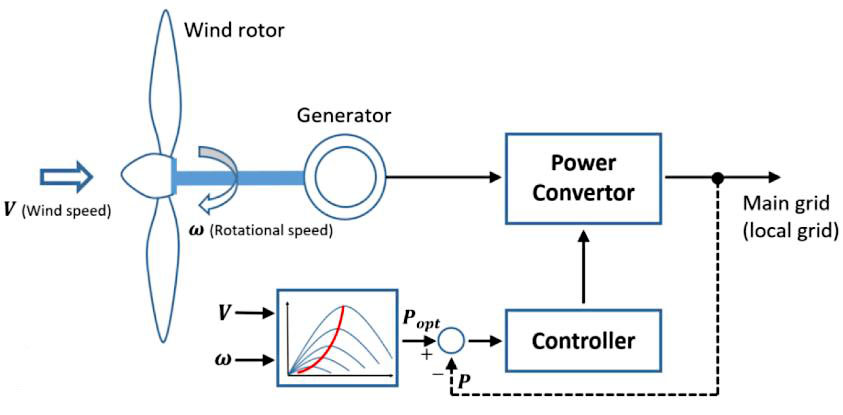
Supply and Demand of Wind Energy
Wind energy is a great alternative to fossil fuels because it is a free, clean and renewable source of energy. However, the wind industry faces some important issues. Wind is intermittently available, so wind farms cannot always be relied upon to meet utility energy needs. Wind farms can be troublesome when located near residences due to aesthetics, noise disturbances caused by the turbine, and shadow flickering caused by the rotating blades as they interrupt sun rays. There are also supply and transport issues related to wind energy. Because of the large size of wind turbines, manufactured items (blades) are difficult to transport to the project site.
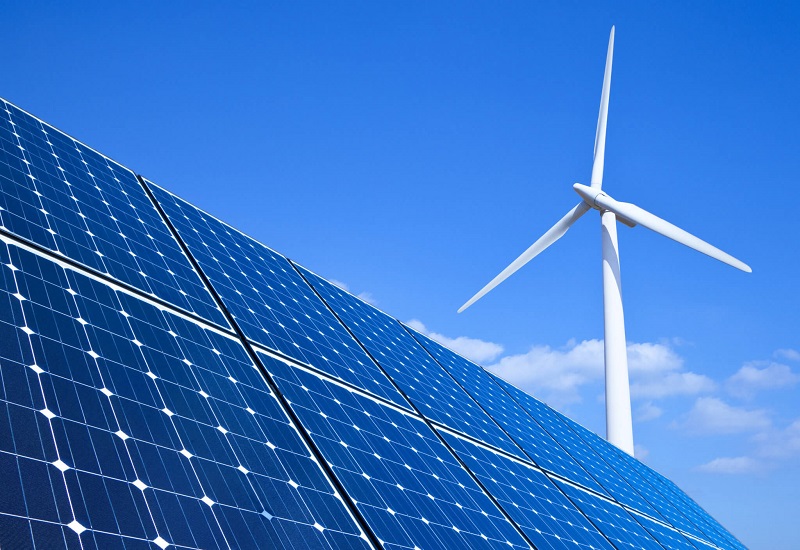
Wind Energy in Kansas
Despite the issues surrounding wind farms, wind energy generation is still viable, especially in Kansas. Kansas ranks fifth in 2016 on the American Wind Energy Association state ranking for installed wind energy capacity. The U.S. Energy Information Administration explained that "wind energy has grown from less than 1% of net electricity generation in 2005 to 24% in 2015, making wind the state’s second largest power provider, after coal.
Wind Energy Harvest
Today's wind-harvesting technology includes blades connected to a rotor, a gear box, a braking system, a turbine, and a generator. A nacelle is the compartment that houses the generating components of the wind turbine. The rotor connects the blades to a shaft within the nacelle, which connects to a generator. The blades are aerodynamically designed to create a lifting force as the wind flows towards the turbine, which causes the rotor to spin. The rotational speed of the turning blades is not fast enough to generate electricity, so a gear box is needed to increase the rotational speed of the shaft. The U.S. Department of Energy defines the gear box as connecting the "low-speed shaft to the high-speed shaft and increases the rotational speeds from about 30-60 rotations per minute (rpm), to about 1,000-1,800 rpm; this is the rotational speed required by most generators to ”produce electricity". An anemometer and wind vane connected to the top of the wind turbine measure wind speed and direction to send signals to a yaw- and pitch-system. These mechanisms ensure that the wind turbine is facing the incoming wind flow (yaw) and the blades are tilted enough (pitch) to cause efficient lift force from the wind. Additionally, if the wind speed becomes too turbulent, the anemometer sends a signal to the braking system to prevent damage to the rotor, gear box, and generator. Generally, you will find wind turbines grouped together to form a wind farm. They can generate bulk electrical power and can be sized to the site, application, and energy needs.

Supply and Demand of Wind Energy
Wind energy is a great alternative to fossil fuels because it is a free, clean and renewable source of energy. However, the wind industry faces some important issues. Wind is intermittently available, so wind farms cannot always be relied upon to meet utility energy needs. Wind farms can be troublesome when located near residences due to aesthetics, noise disturbances caused by the turbine, and shadow flickering caused by the rotating blades as they interrupt sun rays. There are also supply and transport issues related to wind energy. Because of the large size of wind turbines, manufactured items (blades) are difficult to transport to the project site.

Wind Energy in Kansas
Despite the issues surrounding wind farms, wind energy generation is still viable, especially in Kansas. Kansas ranks fifth in 2016 on the American Wind Energy Association state ranking for installed wind energy capacity. The U.S. Energy Information Administration explained that "wind energy has grown from less than 1% of net electricity generation in 2005 to 24% in 2015, making wind the state’s second largest power provider, after coal.
Post a Comment:
You may also like:

Featured Articles
Technical Potential for Wind Energy
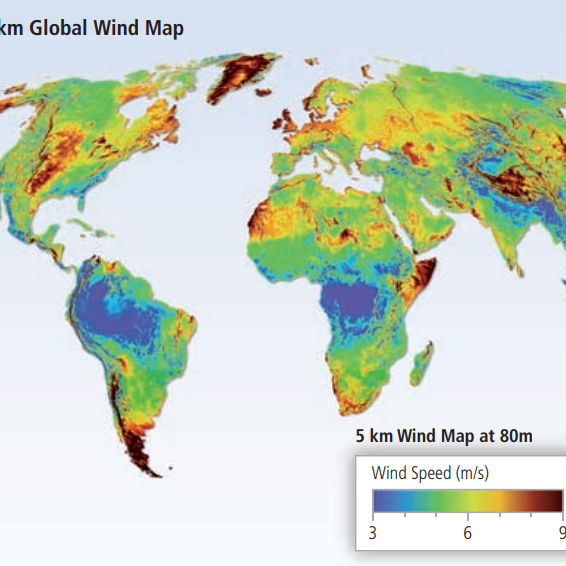 The theoretical potential for wind, as estimated by the global annual flux, has been estimated at 6,000 EJ/yr. The global ...
The theoretical potential for wind, as estimated by the global annual flux, has been estimated at 6,000 EJ/yr. The global ...
 The theoretical potential for wind, as estimated by the global annual flux, has been estimated at 6,000 EJ/yr. The global ...
The theoretical potential for wind, as estimated by the global annual flux, has been estimated at 6,000 EJ/yr. The global ...What Are the Advantages of Wind Energy?
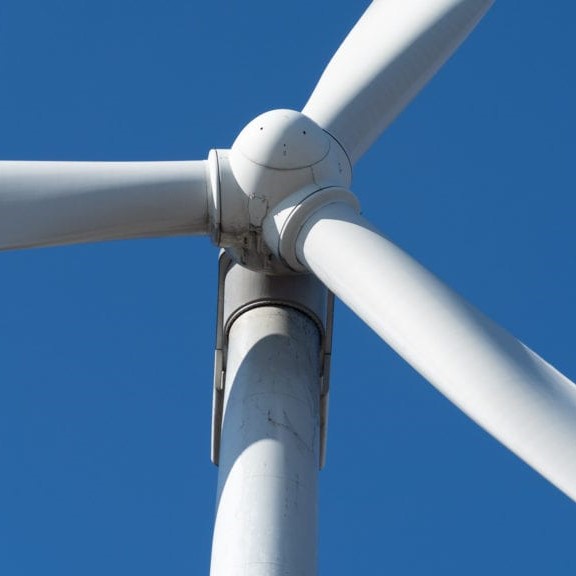 Wind power is the fastest-growing source of electricity worldwide. The American Wind Energy Association estimates that more ...
Wind power is the fastest-growing source of electricity worldwide. The American Wind Energy Association estimates that more ...
 Wind power is the fastest-growing source of electricity worldwide. The American Wind Energy Association estimates that more ...
Wind power is the fastest-growing source of electricity worldwide. The American Wind Energy Association estimates that more ...Wind Energy Background
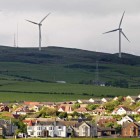 The kinetic energy in the wind is a promising source of renewable energy with significant potential in many parts of the world. ...
The kinetic energy in the wind is a promising source of renewable energy with significant potential in many parts of the world. ...
 The kinetic energy in the wind is a promising source of renewable energy with significant potential in many parts of the world. ...
The kinetic energy in the wind is a promising source of renewable energy with significant potential in many parts of the world. ...What is the Wind Energy Conversion ...
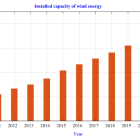 Due to technical and economic visibility, wind power has emerged as one of the most promising renewable energy sources ...
Due to technical and economic visibility, wind power has emerged as one of the most promising renewable energy sources ...
 Due to technical and economic visibility, wind power has emerged as one of the most promising renewable energy sources ...
Due to technical and economic visibility, wind power has emerged as one of the most promising renewable energy sources ...How Wind Energy is Collected and ...
 Wind energy is a form of solar energy. Earth’s atmosphere is unevenly heated by solar radiation and the air is in constant motion ...
Wind energy is a form of solar energy. Earth’s atmosphere is unevenly heated by solar radiation and the air is in constant motion ...
 Wind energy is a form of solar energy. Earth’s atmosphere is unevenly heated by solar radiation and the air is in constant motion ...
Wind energy is a form of solar energy. Earth’s atmosphere is unevenly heated by solar radiation and the air is in constant motion ...